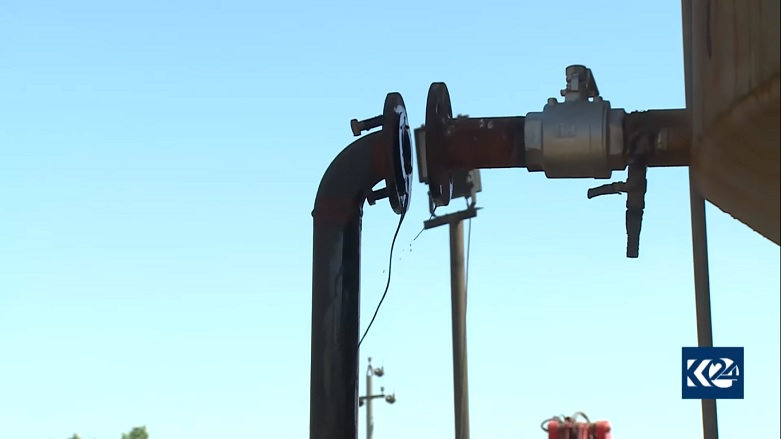Kurdistan mayor hands ultimatum to unlicensed oil refineries
An official from the Kurdistan Regional Government (KRG) warned on Tuesday that operators of oil refineries in violation of industry regulations have been warned that they must cease activity within two months or face legal action and forceful closure.

ERBIL (Kurdistan 24) – An official from the Kurdistan Regional Government (KRG) warned on Tuesday that operators of oil refineries in violation of industry regulations have been warned that they must cease activity within two months or face legal action and forceful closure.
Nabaz Abdulhamid, the mayor of Erbil Central District, told Kurdistan 24 that there are currently 160 oil processing plants operating in the Kurdistan Region that the government deems illegal. He specified that 106 of them are in Erbil Province, 24 in Sulaimani, and the rest are in Duhok.
Abdulhamid said that all 106 refineries operating in Erbil Province “have been alerted… to cease working within sixty days or face legal action and their refineries will be shut down with force.”
According to the mayor, owners of the businesses were first handed the warning on Jan. 15, which gave them a two-month deadline to implement industry regulations that, among others, ensure the quality of their products and meet environmental protection standards.
In early August, Abdulhamid told Kurdistan 24 that many such refineries were being permitted to operate to fulfill the daily energy needs of the Kurdistan Region, namely gasoline and diesel because demand could not be fully met by officially licensed refineries. He also claimed to be cracking down on those that did not meet the standards.
“So far, we have shut down 57 illegal refineries that were not abiding by environmental instructions,” he said.
Although the output of the additional poorly-regulated refineries has helped to provide much-needed oil, environmentalists have charged that they are run irresponsibly and have called for the government to assign a higher priority to health, safety, and a clean environment. Due to the substandard practices used by many operators, they say, a number of such businesses are polluting surrounding reservoirs and poisoning animals that graze on nearby pastures.
The new measures appear to be part of a general tightening in regulations, but it is unclear if the damage caused by the makeshift plants are significantly, or at all, higher than other plants which operate within the normal confines of governmental regulations.
Abdulhamid added on Tuesday that there are currently twenty refineries that have implemented most of the industry standards demanded by the KRG and that, if they are to successfully apply “the rest of the guidelines, they will be allowed to operate.”
Editing by John J. Catherine
